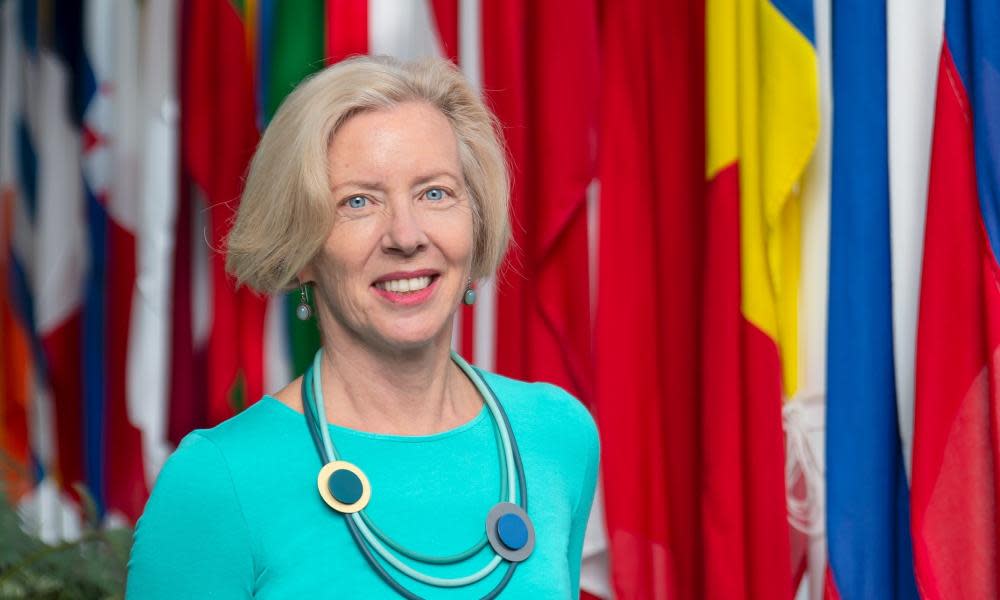AstraZeneca vaccine may not go to older people, EU medicines chief suggests

The Oxford/AstraZeneca vaccine may be authorised only for younger people in Europe, because there is insufficient data on how well it works in the over-65s, the head of the regulatory body has suggested.
The European Medicines Agency (EMA) is expected to authorise the AstraZeneca vaccine at the end of this week, a month after it was approved in the UK.
Emer Cooke, the EMA’s executive director, told the European parliament that it is examining the “totality of the data” provided by AstraZeneca across different age groups.
In an interview with la Repubblica on Tuesday, AstraZeneca’s CEO, Pascal Soriot, acknowledged there was “a limited amount of data” on the effects of the vaccine in older people, but insisted the information they had showed “very strong antibody production against the virus in the elderly, similar to what we see in younger people”.
He said he understood if some countries “out of caution, will use our vaccine for the younger group”.
But he added: “Honestly, it is fine. There’s not enough vaccines for everybody. So if they want to use another vaccine for older people and our vaccine for younger people, what’s the problem? It’s not a problem.”
Their comments follow the comprehensive rejection of claims in German newspapers that the efficacy of the vaccine may only be 8% in the over-65 age group.
AstraZeneca said the 8% figure was “completely incorrect” and pointed to the data published in the Lancet medical journal and by the Medicines and Healthcare products Regulatory Authority (MHRA) in the UK, which gave the vaccine emergency authorisation in December.
The vaccine is being widely used in the immunisation campaign in the UK for people over the age of 70.
Watch: 'Bad Batch' Of Moderna Vaccines Pulled From Distribution
The German health ministry suggested the reports had confused the efficacy rate with the number of people over 65 in the trials.
“At first sight, it appears that two things have been muddled in the reports,” said the statement.
“Around 8% of participants in the AstraZeneca efficacy trials were aged between 56 and 69 years old, only 3 to 4% were over 70. This does not result in an efficacy of only 8% among seniors.”
But the German government also voiced concerns about the breadth of AstraZeneca’s trial participation: “It has been known since the autumn that fewer seniors were included in the trials supplied by AstraZeneca than the trials of other manufacturers.”
AstraZeneca has said 10% were over the age of 65.
In a session of the European parliament’s health committee, Cooke said she would not prejudge any decision on approval for the vaccine.
But she said it was possible that any authorisation might stipulate that it should only be given to certain age groups.
Experts as well as the company say that earlier trials showed people over the age of 65 had a very good antibody response to the vaccine. It caused them to make levels of antibodies against the coronavirus that were as high as those of younger people.
“In November, we published data in the Lancet demonstrating that older adults showed strong immune responses to the vaccine, with 100% of older adults generating spike-specific antibodies after the second dose,” said a spokesperson for AstraZeneca.
The regulator in the US, the Food and Drug Administration (FDA), has not yet licensed the AstraZeneca vaccine, preferring to wait for the results of a large American trial involving 30,000 people.
That trial is designed to answer the outstanding questions as to whether the vaccine protects a diversity of people, including older adults as well as people from black and ethnic minority populations, who were also not well enough represented in previous trials.
Independent experts said they were mystified by the stories of efficacy as low as 8%.
Related: Why experts say there is no basis to claims in Germany about efficacy of AstraZeneca vaccine
Adam Finn, professor of paediatrics at the University of Bristol, who has reviewed the data, said: “I can confirm what is stated about the Lancet paper – I’m not an author on that manuscript but I’ve have read it.
“Elderly people were recruited to the UK phase 3 relatively late and were relatively well shielded, so there were few cases of Covid that had occurred at the time of submission of data to the MHRA for approval.
“There may have been more by the time of the EMA submission. No idea where the 8% figure comes from.”
In a statement, the German newspaper Handelsblatt said it stood by its report that there were ongoing concerns over the AstraZeneca vaccine’s low efficacy within the German government, although the newspaper did not repeat the specific 8% figure previously cited.
“According to information by Handelsblatt, the government’s doubts about the efficacy of the AstraZeneca vaccine among elder risk groups have not been dispelled.
“A high-ranking official within the health ministry told Handelsblatt: ‘A mix-up of the numbers is impossible. On the basis of the data made available to us so far, the efficacy among the over-60s lies below 10%.’”
Watch: How does the number of coronavirus deaths in the UK compare with other countries?


